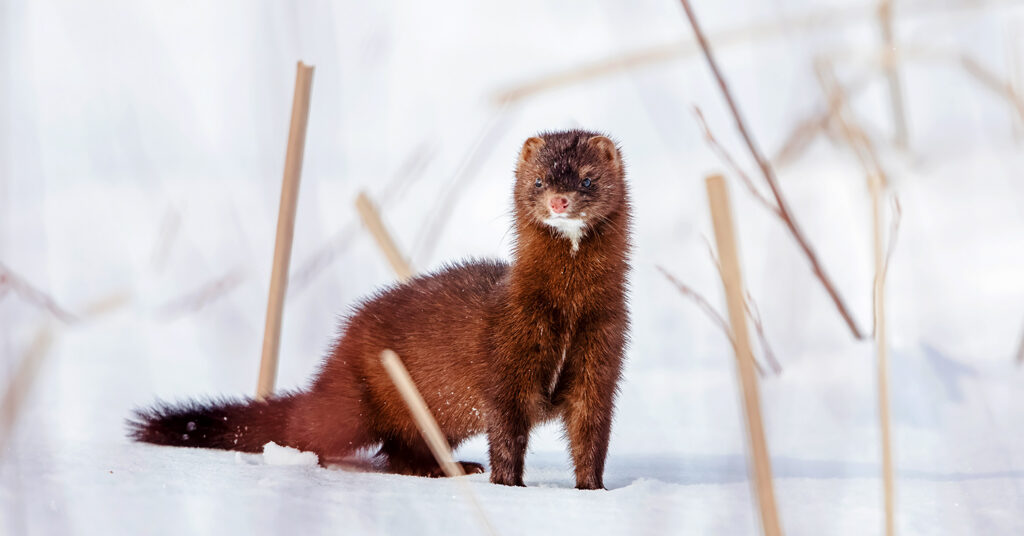Italy could ban fur farming and shut down all active operations over the next few months.
Today, the Budget Committee of the Italian Senate voted to approve a modified amendment to a budget law that would permanently ban the Italian fur farming industry nationwide. Animals currently farmed in the country include foxes, raccoon dogs, chinchillas, and mink.
So far, COVID-19 outbreaks have been confirmed on approximately 465 mink farms across 12 countries, and studies indicate that the susceptibility of this species, in particular, to the coronavirus, combined with the cramped, unsanitary conditions of factory fur farming in general, make the industry a high-risk environment for this and any future pandemics.
The ban would see Italy’s remaining fur farms discontinued by June 30, 2022, and sets out three million euros in compensation for farmers and workers affected by forced closures. Member of Parliament the Hon. Michela Vittoria Brambilla endorsed the conversion proposal, and Sen. Loredana De Petris formally submitted the amendment.
Italy bans fur farming nationwide
According to leading animal protection charity Humane Society International (HSI), the vote followed discussions with the committee over the future of captive mink in Italy, including a report on how to convert the 10 remaining farms into “humane and sustainable businesses.”
While the decision still requires final approval by Italy’s parliament, HSI claims that this is expected before the end of the year. If so, Italy will soon become the 16th country in Europe to completely ban fur farming, joining Hungary, France, and many more.
“This is a historic victory for animal protection in Italy,” says HSI Italy director Martina Pluda. “Today’s vote recognizes that allowing the mass breeding of wild animals for frivolous fur fashion represents a risk to both animals and people that can’t be justified by the limited economic benefits it offers to a small minority of people involved in this cruel industry.”
Fur farming: unethical and unsustainable
Earlier this year the Italian government ordered the suspension of mink breeding on farms following a series of COVID-19 outbreaks, with millions of mink culled in Europe alone.
Meanwhile, a coalition of European countries led by Austria and the Netherlands are calling for the European Commission to legislate the end of all fur farming throughout the EU, with many member states expressing support for such a change.
Pluda adds: “There are very clear economic, environmental, public health and of course animal welfare reasons to close and ban fur farms.”
Consumers are increasingly concerned with the environmental and ethical context of their purchases. As a result, many brands and designers have been quick to distance themselves from fur over the last few years, including iconic Italian labels such as Valentino, Armani, GUCCI, Prada, and Versace. The majority have cited animal welfare and sustainability as key motivators along with changing public perception of animal-derived textiles.


